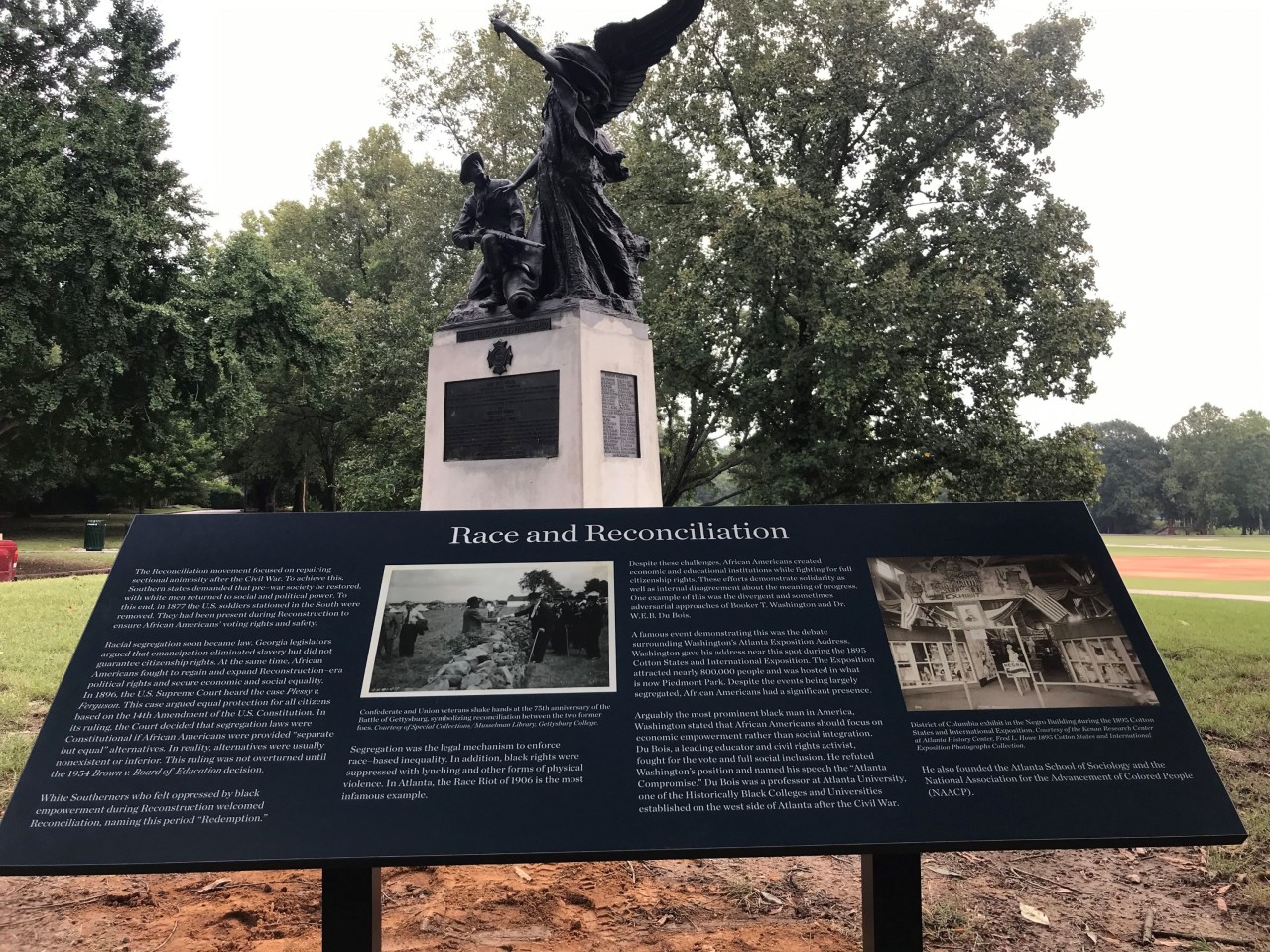The president of the Atlanta branch of the NAACP says he’s profoundly disappointed with the content of one of the historical context markers that was installed this month in Piedmont Park.
The sign summarizes a controversial speech given there in 1895 by Booker T. Washington as he addressed the Cotton States and International Exposition.
“Washington stated that African Americans should focus on economic empowerment rather than social integration,” reads a portion of the sign.
Richard Rose, who leads the local NAACP branch takes issue with Washington’s inclusion on the sign.
“If the premise [of the sign] is to repudiate white supremacy, Booker T. Washington should not have been quoted. But if you’re gonna quote him, quote it accurately,” Rose said.
Rose argues that Washington’s remarks, known as the Atlanta Compromise Speech, actually advocate for white supremacy. He claims the signs don’t accurately reflect that.
The panel does subsequently mention that Washington’s view was at odds with many prominent civil rights activists at the time, including W.E.B. Du Bois.
“The reason many many southern cities have high schools named for Booker T. Washington is because he was favored by white southerners because of his position and advocacy for accepting white supremacy,” said Rose, who expressed his complaint in a letter this week to the Atlanta City Council.
Georgia state law prohibits the removal of Confederate monuments. The city of Atlanta convened a committee in 2017 to study the issue of what to do about Confederate monuments. Part of the result of that committee were the signs, which were installed in early August by the Atlanta History Center.
Dr. Calinda Lee is Vice President of Historical Interpretation and Community Partnerships with the Atlanta History Center. She wrote researched and wrote the language that appears on the sign and defended the interpretation.
“We really labored over the text here to be as complete and nuanced as a panel of this length would allow us to be,” said Lee. “It just gives it to you kind of straight that this is what this man was arguing for.
“I want to step away from this notion of Booker T. Washington as a flat character. Booker T. Washington was an incredibly complicated person and so that’s all a part of what we wanted to do with this.”
Sheffield Hale is President CEO of the Atlanta History Center.
“That’s what these markers are about is about creating conversation. And it’s great that we’re talking about them and talking about the history,” said Hale.









